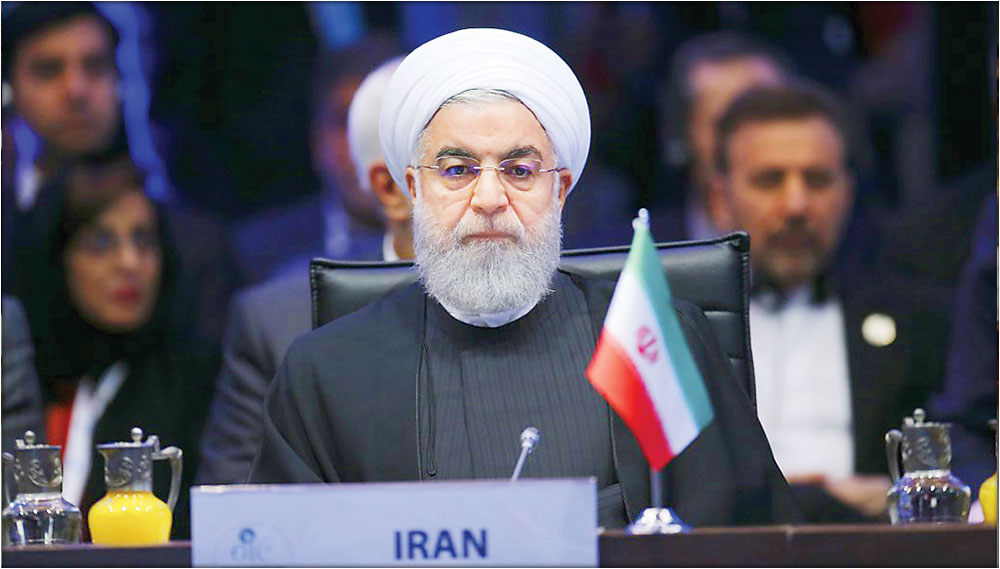MUSLIMS ENTER AMERICAN POLITICS
- 10 Nov - 16 Nov, 2018
I feel this week the way I imagine George Orwell felt just about every week in, say, 1939 or 1940. The question Orwell faced, week after week in those years, as he wrote a regular “London Letter” for an American magazine and many other essays both timely and durably relevant – with titles like “Politics and the English Language” and “Notes on Nationalism” – was: In the midst of such an onrush of appalling events, what is there to say?

That’s a difficult question to answer. But the payoff in understanding and peace of mind can be great, if one really puts in the needed effort to answer it properly. Orwell was a great writer not because he wrote with great facility or ease – he didn’t; others of his generation were more naturally talented – but because he respected language and possessed moral courage. And he was attentive to what was really going on in the times he was living through. Indeed, the three traits – respect for language, moral courage, and attention – are so intimately connected to each other that they’re really just three words for the same thing.
Orwell came to mind, as I sat down to write this column, because I found myself wondering what there is to say, right now in particular. But isn’t that always the question? During the week preceding this writing, Trump unilaterally withdrew the United States from the nuclear agreement with Iran. Iran and Israel attacked each other’s positions and infrastructure in Syria, and accused torturer Gina Haspel testified in the U.S. Senate en route to almost certainly being confirmed as director of the CIA. Then Dick Cheney, the sinister mastermind of
the Bush administration, endorsed her. Meanwhile, Oliver North – the same Oliver North who collaborated in the notorious Iran-contra scandal under Reagan three decades ago – was named the new president of the infamously aggressive National Rifle Association and proceeded to call advocates of gun control “civil terrorists.”
In the face of such serial outrages to both intellectual and moral sense, the easy thing is to resort to social media to signal one’s virtuous opposition to evil deeds and people. Tweeting clearly makes a great many people feel better about themselves, but I’m becoming convinced that such an easy response is worse than pointless. That’s not to say that all digital media is pointless or damaging. All media is digital , for one thing, and media is how we do get information and reminders that we need.
For example, in my email inbox I received this welcome reminder from Dr. Maha Hilal of the admirable U.S.-based Islamic Scholarship Fund: “When Gina Haspel, a CIA career professional, with a direct role in overseeing the first black site in the War on Terror where two Muslim prisoners were waterboarded repeatedly, was nominated by President Trump to direct the agency, no one mentioned the identities of the victims as Muslims. And let’s be clear that all of the prisoners who went through the CIA’s rendition, detention, and interrogation program from 2002-2008 were Muslims. Those imprisoned during this period… were subjected to the most brutal methods of torture including forced feeding, stress positions, and sleep deprivation.”

And the group, Voices for Creative Nonviolence, drew a comparison that you won’t read in most U.S media:
“Haspel testified that while she can’t say what exactly might constitute an immoral order in the past, her ‘moral compass’ would not allow her to obey one today. … ‘I’m not going to sit here, with the benefit of hindsight, and judge the very good people who made hard decisions.’ She… insists that… such ‘harsh interrogations’ were allowable under the legal guidance the CIA had at the time and ‘that the highest legal authority in the United States had approved it, and that the president of the United States had approved it.’
“Likewise [infamous Nazi official Adolf] Eichmann was probed about his obedience when ‘ordered to do something blatantly illegal.’ In a response that augured Haspel’s Senate testimony a half century later, Eichmann told his interrogators: ‘You say illegal. Today I have a very different view of things... But then? I wouldn’t have considered any of those actions illegal. If anyone had asked me about it up until May 8, 1945, the end of the war, I’d have said: This government was elected by a majority of the German people. Every civilised country on earth had its diplomatic mission. Who is a little man like me to trouble his head about it? I get orders from my superior and I look neither right nor left. That’s not my job. My job is to obey and comply.’”
We all know that torture is wrong, even – or especially – if it’s ordered by our superiors. It was wrong in Germany 75 years ago, and it’s wrong in America, Pakistan, or anywhere else today. Even Gina Haspel knows this, just as Adolf Eichmann did. But where that leave me or you or George Orwell, as a powerless private individual? A few months ago a friend gave me wise advice that Orwell would have endorsed:
“Over-thinking the many alarming developments in the world at too broad a level can propel me into a bleak place very quickly,” she wrote. “Also helpful to me has been staying in close contact with good friends, not to console or commiserate with each other, but just to focus on the relationship. Make sure you’re connecting with friends rather than withdrawing (which is often my first inclination). … [Another friend] has decided she won’t look at online news until at least 11:00 every morning, so she has a chance to take her walk and appreciate the woods and the wildflowers where she lives, and set an affirming tone for her day.”
All any of us individuals can control are the quality of our attention, our own moral courage, and our use of language. Those are all important things, and in some ways they make all the difference. •
COMMENTS